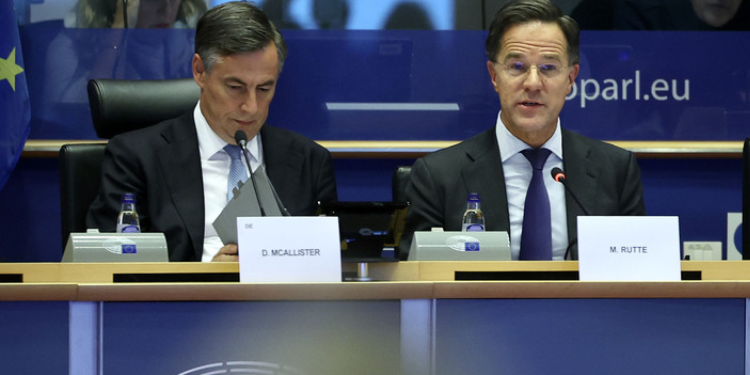Rutte’s Hearing at the European Parliament: Balancing Defence and Social Systems
The hearing of NATO Secretary General Mark Rutte at the European Parliament on Monday 13 January 2025, highlighted critical issues about Europe’s defence spending and its broader implications. Rutte’s call for increased defence investment is timely given the current geopolitical threats, but it also raises questions about balancing this with social systems, recruitment challenges, and divergent priorities among EU nations.
Rutte emphasized the need to boost defence spending, suggesting that even a fraction of the budgets allocated to health, pensions, and social systems could significantly strengthen Europe’s military capabilities. However, this perspective comes amid societal unrest, such as the protests in Brussels over potential threats to pension systems. The real challenge is finding a sustainable balance that ensures security without undermining social stability. This debate requires a nuanced approach that avoids framing defence investments as a threat to social welfare.
The Overlooked Human Factor
While discussions focused on boosting industry capacity and acquiring advanced equipment like planes, ships, satellites, and drones, the human dimension of defence was notably absent. Recruitment and retention challenges persist across NATO and EU member states, posing a significant risk to the effectiveness of military investments. Without skilled personnel to operate advanced equipment, Europe could face a gap between technological capability and operational readiness.
This omission reflects a broader trend of prioritizing material investments over human resources in defence planning. European leaders, including among others Italy’s Defence Minister Guido Crosetto, have failed to adequately address this issue. Crosetto, for instance, expressed concerns during Monday’s meeting in Warsaw about meeting a 5% GDP target for defence spending, citing industry absorption limits. However, his remarks also missed the opportunity to highlight the importance of investing in human capital alongside industrial capacity.
The Path Forward: Collaboration and Balance
As European leaders prepare for an informal summit next month to discuss defence spending, joint military equipment development, and partnerships with countries like the UK, the comprehensive approach emphasized by Mark Rutte during his hearing at the European Parliament remains crucial. Strengthening the collaboration between EU and NATO and building a strong European pillar in the alliance remains essential, as does balancing technological investments with strategies to attract and retain military personnel.
Europe stands at crossroads. The future of its defence depends on bold decisions that address not only the technological and industrial aspects of military capacity but also the human factor. Policymakers must explore synergies that ensure security while maintaining societal stability, avoiding the risk of creating a defence infrastructure without the personnel to sustain it.

